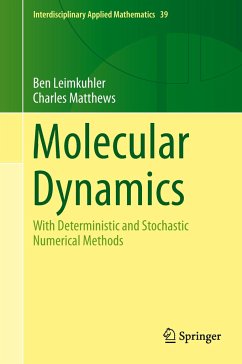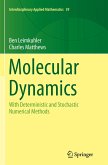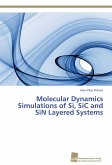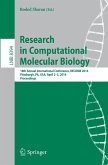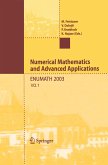This book describes the mathematical underpinnings of algorithms used for molecular dynamics simulation, including both deterministic and stochastic numerical methods. Molecular dynamics is one of the most versatile and powerful methods of modern computational science and engineering and is used widely in chemistry, physics, materials science and biology. Understanding the foundations of numerical methods means knowing how to select the best one for a given problem (from the wide range of techniques on offer) and how to create new, efficient methods to address particular challenges as they arise in complex applications.
Aimed at a broad audience, this book presents the basic theory of Hamiltonian mechanics and stochastic differential equations, as well as topics including symplectic numerical methods, the handling of constraints and rigid bodies, the efficient treatment of Langevin dynamics, thermostats to control the molecular ensemble, multiple time-stepping,and thedissipative particle dynamics method.
Aimed at a broad audience, this book presents the basic theory of Hamiltonian mechanics and stochastic differential equations, as well as topics including symplectic numerical methods, the handling of constraints and rigid bodies, the efficient treatment of Langevin dynamics, thermostats to control the molecular ensemble, multiple time-stepping,and thedissipative particle dynamics method.
"This book is strongly recommended both for individual study and as the basis of a graduate course in computational MD that covers current research topics; for an audience of mathematics students, who may feel uneasy with the rather pragmatic presentation that mixes analytical arguments, numerical demonstrations, and heuristics ... . Researchers in the field ought to find the book to be worth occupying a spot in their bookshelves." (Carsten Hartmann, SIAM Review, Vol. 57 (3), September, 2015)

